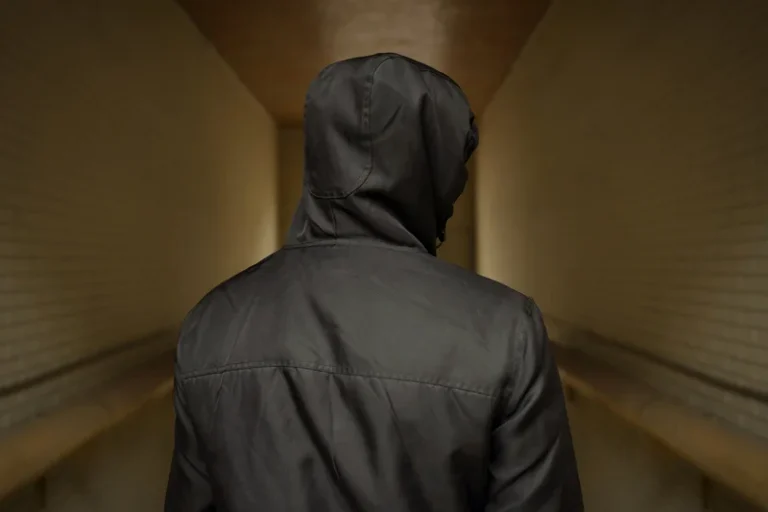
It is not uncommon for women to leave rehab with a smaller support system than they had before they started abusing their substance of choice. Relationships after rehab often need to be rebuilt, and new relationships formed. To help you with this process of building healthy relationships in recovery and after rehab, we have compiled 5 tips to utilize during your recovery from addiction.
- Connection in recovery also provides a source of positive reinforcement.
- Managing existing relationships and identifying toxic ones can significantly influence the journey towards a healthy and sober life.
- People who are patient and cooperative will not only be able to work through any potential conflicts, they will also make their relationship stronger.
- There was still a massive weight of relief, because I know that I was honest with them and that my side of the street was now cleaner than it was prior.
- The thing to remember is that rebuilding relationships in recovery is a collaborative effort.
Want to Learn More About Military Life?
- It’s important for both partners to respect each other’s recovery process and support each other’s sobriety goals.
- All partnerships encounter problems especially in the longer term, when the initial excitement of romance wears off (Falconier et al., 2015).
- Similarly, loved ones should strive to genuinely listen to the thoughts, feelings, and experiences shared by the individual in recovery without interrupting or judging.
- There’s a chance that your loved one may not be open to it, depending on your history.
In uncomplicated grief, though, the intensity of those reactions softens with time. Complicated grief, on the other hand, is more intense, persistent and prolonged, significantly interfering with a return to “normal” life. There’s no set timeline for grief, and anyone who tells you relationships in recovery to “move on” or “get over it” is underestimating and misunderstanding the weight of loss. As with every other stage of grief, these emotions can be experienced in reaction to non-death losses, too. Say you lost your job and feel angry at the co-worker who took on your workload.

Ways to Build Healthy Relationships in Recovery
If you are in recovery, it’s important to rebuild relationships where trust has been breached and with individuals who encourage your recovery. One of the critical aspects of maintaining healthy relationships in recovery is recognizing and ending toxic relationships. Toxic relationships can hinder the recovery process, making it essential to identify them and take steps towards ending them. First and foremost, relationships offer a sense of belonging and connection. They provide emotional support, empathy, and understanding during challenging times, helping individuals feel less alone in their journey. Having someone to lean on, share your struggles with, and celebrate milestones with can make the recovery process more manageable and meaningful.

Rebuilding Trust in Couples

Trust establishes respectful vulnerability allowing for the relationship to progress in a healthy manner. If someone recovering from addiction does not trust their partner, they may hide progress of sobriety from their partner, or feel they cannot be vulnerable about their sobriety. Whether you are navigating the waters of addiction treatment yourself or are a concerned loved one, understanding how to mend, make, and maintain relationships during this time is crucial. This silent connections worksheet outlines an exercise based on mindfulness of other people and using non-verbal communication to build social connections.
Practice Good Communication Skills
- The 12-step program has been widely recognized as a valuable tool for repairing and rebuilding relationships in the context of recovery.
- By applying Bowen’s principles, individuals can develop healthier relationship dynamics, ultimately benefiting themselves and future generations.
- Show support for their goals, dreams, and changes they wish to make in their lives.
- It’s essential to recognize the signs of a toxic relationship to take appropriate actions.
- There is a large body of research showing that addiction can have negative impacts on relationships, and I have never met someone in recovery who was unaware that addiction hurts loved ones.
- Either way, creative boundary setting will help to keep you out of harm’s way.
If you’re ready to navigate the path toward health and deeper connections that foster lasting joy, love, and support, then call Purposes Recovery today. It is important to note that there are other potential relationships that individuals in recovery may wish to mend. These may include relationships with sponsors, teachers, coaches, coworkers or bosses.
The 5 Stages of Grief After a Loss
By witnessing positive changes and growth in recovery, loved ones may be encouraged to explore their healing process. Sobriety can serve as a powerful example, leading others toward their path of personal growth and positive change. In both addiction and recovery, someone may become so focused on individual processes that they neglect the interpersonal processes with others. That is one reason people sometimes find that even though their addiction recovery is going well, their relationship recovery is lagging behind. Forming and maintaining healthy relationships is critical for those in recovery for drug and alcohol addiction; these kinds of relationships help people maintain sobriety for the long term. The foundation of mending relationships is recognizing the impact of your substance abuse on others.

- It’s an essential aspect that demonstrates commitment, effort, and intent, indicative of a readiness for change in other areas of life as well.
- Engaging in toxic relationships can create feelings of frustration, unnecessary stress, and conflict.
- Oftentimes the loss of trust can be traced to a breakdown in communication.
- This active listening worksheet outlines each skill and encourages you to reflect on how it can improve communication.
- Through the therapeutic process, they discovered they were repeating the over- and under-functioning dynamic present in their respective families of origin.


